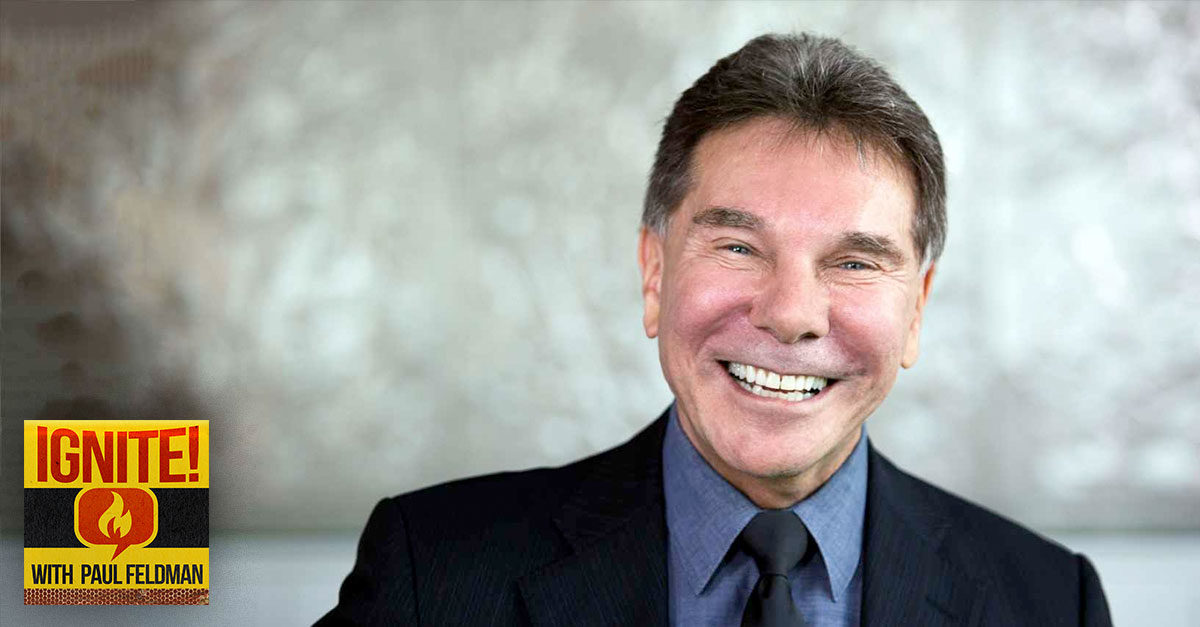#16: The power of influence, with Robert Cialdini
On this episode, we tap into the power of influence, with Robert Cialdini.
You can’t move people to a decision unless you have pull. That magic power, of course, is influence – but you can’t simply conjure it up by waving a wand. Influence can be found by following six simple principles laid out by Robert Cialdini.
[powerpress]
Those principles form the basis of his seminal book, Influence, considered a must-read for anyone in selling. But it's not just for sales; the book and its concepts are important for anyone who wants to influence someone else – and really, who doesn't?
Part of what makes Robert's ideas so engaging are the decades of science and observation that support them. Some of the principles are not surprising – but Robert gets under the hood and explains why things work…and how to supercharge sales performance.
SHOW NOTES:
02:30 Robert started by talking about how insurance producers and financial advisors can apply the six principles to be masters of ethical influence.
04:05 The first of Robert’s six universal principles of influence is what he calls “reciprocation.”
05:00 As far as insurance goes, there's somewhat limited scarcity, other than maybe a client who couldn't qualify for it. With that in mind, I asked Robert for some ways to apply scarcity to insurance.
08:25 Robert talks about the third principle: authority.
09:55 Some people are afraid or reluctant to talk about themselves – yet Robert says this is THE most important thing. So, how do they overcome that reluctance?
12:55 How do you establish your trustworthiness if you haven't done so before the meeting, and there’s no third party to vouch for you?
15:15 The fourth principle is commitment and consistency. Robert talks about how those two seemingly separate concepts actually work together.
18:40 An important lesson: People live up to what they write down.
19:25 When it comes to consistency, Robert has a theory. He insists that people hide inside walls of mindless consistency to protect themselves from their own thoughts. So the question is: How do you disrupt consistency?
20:40 The request for commitment seems like a good strategy for other situations. One prime example is a job interview.
22:45 The fifth principle is liking and rapport building. While we’ve all heard the notion that people buy from those they like, Robert says it really goes well beyond that.
26:50 Besides finding similarities, how else can you get prospects and clients to like you? Is it a mistake to think you can control that in someone else?
29:25 Robert’s sixth and final principle is social proof.
34:45 In summary, Robert says the key to effectively using the six principles is to use them strategically, as tools.





#15: Neuromarketing, with Christophe Morin
#17: Master your mind, with Les Brown
Advisor News
- Most Americans optimistic about a financial ‘resolution rebound’ in 2026
- Mitigating recession-based client anxiety
- Terri Kallsen begins board chair role at CFP Board
- Advisors underestimate demand for steady, guaranteed income, survey shows
- D.C. Digest: 'One Big Beautiful Bill' rebranded 'Working Families Tax Cut'
More Advisor NewsAnnuity News
- MetLife Declares First Quarter 2026 Common Stock Dividend
- Using annuities as a legacy tool: The ROP feature
- Jackson Financial Inc. and TPG Inc. Announce Long-Term Strategic Partnership
- An Application for the Trademark “EMPOWER PERSONAL WEALTH” Has Been Filed by Great-West Life & Annuity Insurance Company: Great-West Life & Annuity Insurance Company
- Talcott Financial Group Launches Three New Fixed Annuity Products to Meet Growing Retail Demand for Secure Retirement Income
More Annuity NewsHealth/Employee Benefits News
- NM fills gap after Congress lets ACA tax credits expire
- Congress takes up health care again − and impatient voters shouldn’t hold their breath for a cure
- On the hook for uninsured residents, counties now wonder how to pay
- Bipartisan Senate panel preparing ACA subsidies bill
- CT may extend health insurance sign-up amid uncertainty over future of ACA subsidies, Lamont says
More Health/Employee Benefits NewsLife Insurance News